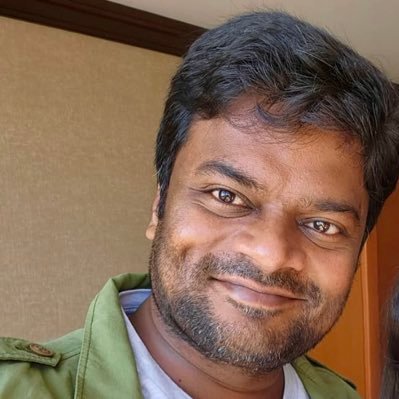
Michael Poeschla
@michaelpoeschla
Followers
45
Following
32
Media
7
Statuses
37
Behind-the-scenes: Vijay Sankaran @bloodgenes (left) and first author, Michael Poeschla @michaelpoeschla (right) in the lab!
What are the mechanisms underlying variable expressivity in monogenetic disorders? @bloodgenes, @michaelpoeschla @BostonChildrens show polygenetic modifiers affect penetrance and expressivity in telomere biology disorders. https://t.co/VyWCeGzCmk
1
4
36
Grateful for this terrific commentary by Tanner Monroe in @jclinicalinvest on our paper that is out in final print format today: https://t.co/G4nMcwKuYM Please check it out: https://t.co/x06JeQrtYn
1
7
50
Delighted to have our preprint led by @lvchosen1 up: Genetic variation reveals a homeotic long noncoding RNA that modulates human hematopoietic stem cells https://t.co/nMP5Xd7aEY 🧵 below ...
5
26
120
excited to share our new preprint looking at mosaic chromosomal alterations in blood whole genome sequencing data! i learned tons working on this project, and i hope our findings are of interest to those thinking about CH, somatic mosaicism, and genetics. https://t.co/HUgGESfBH8
medrxiv.org
Clonal expansions of hematopoietic cells carrying mosaic chromosomal alterations (mCAs) are commonly detectable in elderly individuals. Here, we studied 43,617 autosomal mCAs that we ascertained in...
3
13
42
From a broader perspective, our work shows how human genetic variation can reveal recent evolutionary adaptations, even at well-studied and conserved 🧬 loci, such as the HOXA cluster... Please check it out and feedback is very welcome. 🙏🙏 (fin)
0
2
6
1/14 On behalf of the amazing team in @JswLab, we’re excited to share PEtracer ( https://t.co/QTyBahCCLS) a prime editing-based evolving lineage recorder compatible with both scRNA-seq and high-resolution imaging readouts in intact tissue. By applying PEtracer in a syngeneic mouse
biorxiv.org
Charting the spatiotemporal dynamics of cell fate determination in development and disease is a long-standing objective in biology. Here we present the design, development, and extensive validation...
3
57
195
Check out this fantastic plenary paper from @KaiTanLab1 and colleagues in @BloodJournal: https://t.co/hcDy3T4Q0w
@michaelpoeschla and I had the privilege to write a commentary, "Getting to the root of high-risk leukemias" https://t.co/XCZ7SN2dLr
4
11
49
Beautiful work demonstrating how common variants modify the penetrance of rare variants in both children and adults with telomere biology disorders (TBDs). According to the liability threshold model, rare and common variants additively raise disease risk beyond a threshold,
Delighted to have our work on Polygenic Modifiers of #TelomereBiologyDisorders, led by @michaelpoeschla, along with @SashaGusevPosts, @mitchiela, @SharonSavageMD, @hemanth_tummala, and others, published as an advanced online paper in @jclinicalinvest today:
0
16
70
Here we go again. Another company is selling embryo selection for intelligence. This time they claim to exclude the educational attainment predictor because of confounding. But the most recent data shows the intelligence predictor (which they use) is even more confounded!
Bat signal: @SashaGusevPosts
https://t.co/C3XjkJd50c
9
46
289
What protects individuals from developing blood cancers? Thrilled to share my work in @bloodgenes lab, describing inherited resilience protecting blood stem cells from clonal hematopoiesis by modifying RNA regulation. 🧵👇(1/n) https://t.co/PNaCHa4D4k
3
38
92
Delighted to share my PhD thesis work is now published in @Nature! This study tracks the journey of blood stem cells in aging mice, examining how the clonal dynamics of blood production change over time. A short 🧵1/n #aging #stemcells #clonalhematopoiesis
nature.com
Nature - Isolating and studying haematopoietic stem cells in young and aged mice demonstrates evolutionary processes related to blood production and provides a framework for interpreting future...
14
76
436
Excited that my first 1st authored paper from my PhD research has been published in Anesthesiology! We found that neural oscillations in the alpha band of frequencies (8-12 Hz) during anesthesia can predict the risk of postop mortality up to a year after surgery. 🧵 (1/3)
2
7
10
1 / Interested in how genetic variants influence complex traits? In our new preprint, we show that variant effects depend on the polygenic background in which they occur, and why it is critical to consider polygenic background when studying complex traits.
biorxiv.org
Both rare and common genetic variants contribute to human disease, and emerging evidence suggests that they combine additively to influence disease liability. However, due to the non-linear relatio...
1
16
61
Stem cell-like states confer poor outcomes in blood cancer—but what mechanisms drive this and how can they be therapeutically targeted? In our new preprint, we show how a single TF represses one enhancer to maintain a subset of high-risk leukemias: 🧵👇 https://t.co/JS8yUt0hCJ
7
37
110
illuminating + surprising insights into polygenic disease risk in populations
I wrote about how polygenic heritable conditions present in families and the liability threshold model. This has some counterintuitive implications for considering the risk of a condition in offspring as well as the impact of multi-generational selection. A 🧵:
0
0
3
Had a blast presenting our work yesterday at #ASH24! Feeling especially grateful for my mentors, colleagues and great friends who made this possible. A big thank you to @bloodgenes @RichardVoit @therealDrGundry @LWahlster and @mateusz_ant for their guidance and support.
1
4
18
So excited to see our @NatRevClinOncol review come together! Thrilled to share insights on T cell dynamics in neoadjuvant ICI-treated HNSCC patients. Huge thanks to @DrUppaluri for your incredible mentorship and for all you’re doing to change the field!
Congrats to @MaryannZhao on leading this @NatRevClinOncol review of #scRNASeq studies on #Tcell dynamics in #neoadjuvant ICI treated #HNSCC patients! @HeadNeckMD @DrHaddadRobert @jdschoenfeld1 @rbryanbell
1
5
14
My group's work dissecting the contribution of common variants to rare neurodevelopmental conditions is now out at https://t.co/C8sq6UlaeS. See this thread from co-first authors @qinqin_huang and @EmilieWigdor with a summary of the key findings.
1/ We’re excited to share our new preprint “Dissecting the contribution of common variants to risk of rare neurodevelopmental conditions” available on medRxiv!
1
26
73
Gene therapy is transforming how we treat genetic disorders, but what if mutations in more than 30 genes can cause similar symptoms? Now published in @CellStemCell ( https://t.co/Ub72yvUo0c), we report the development of a universal gene therapy for Diamond Blackfan anemia. 1/n
cell.com
Gene therapy for Diamond-Blackfan anemia is constrained by dozens of causative mutations. Voit and colleagues develop a universal gene therapy through erythroid-lineage-restricted expression of GATA1...
8
22
79



















